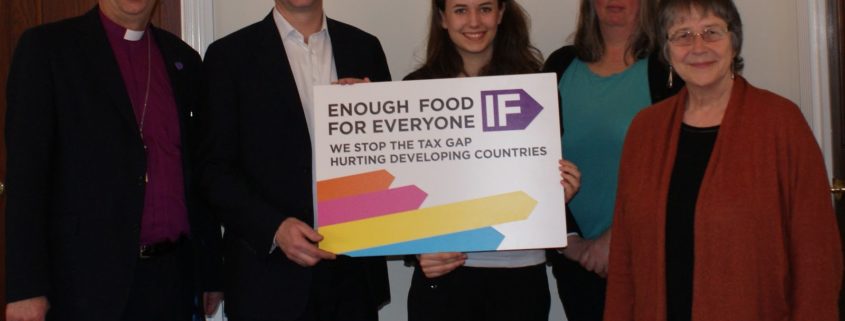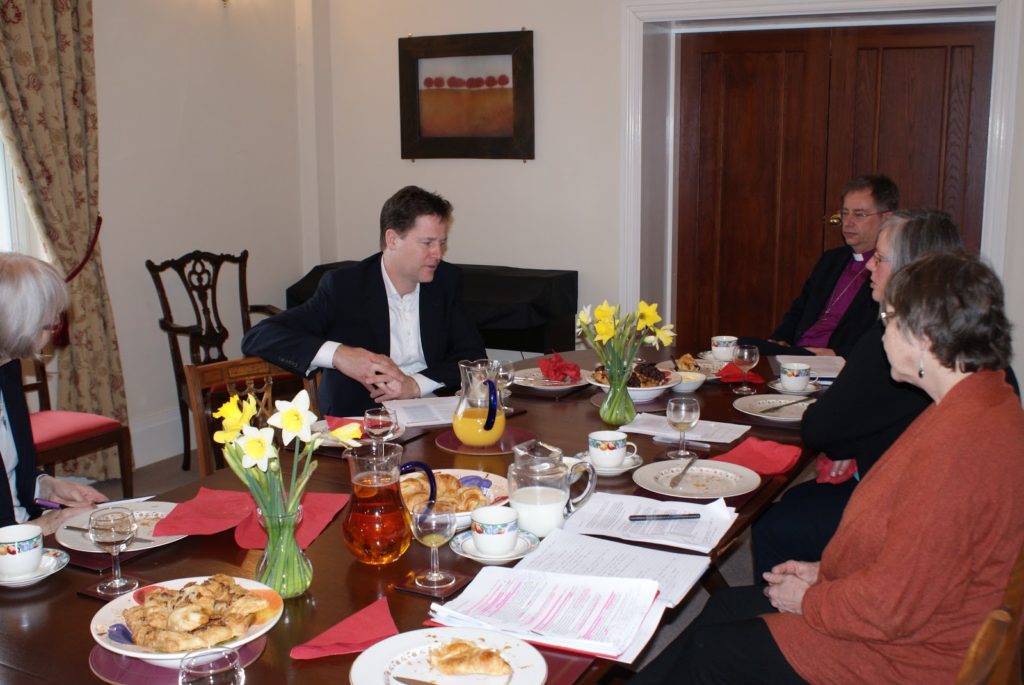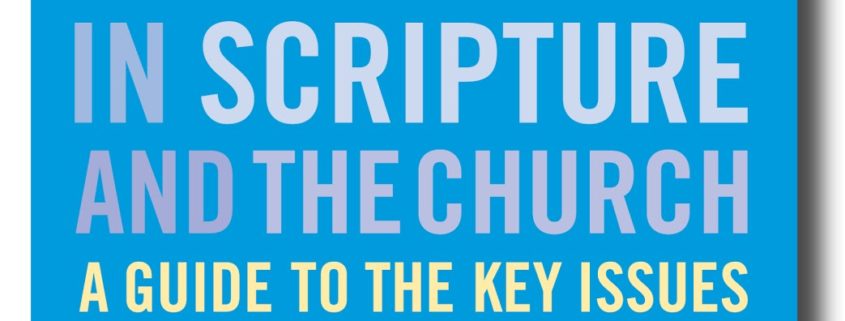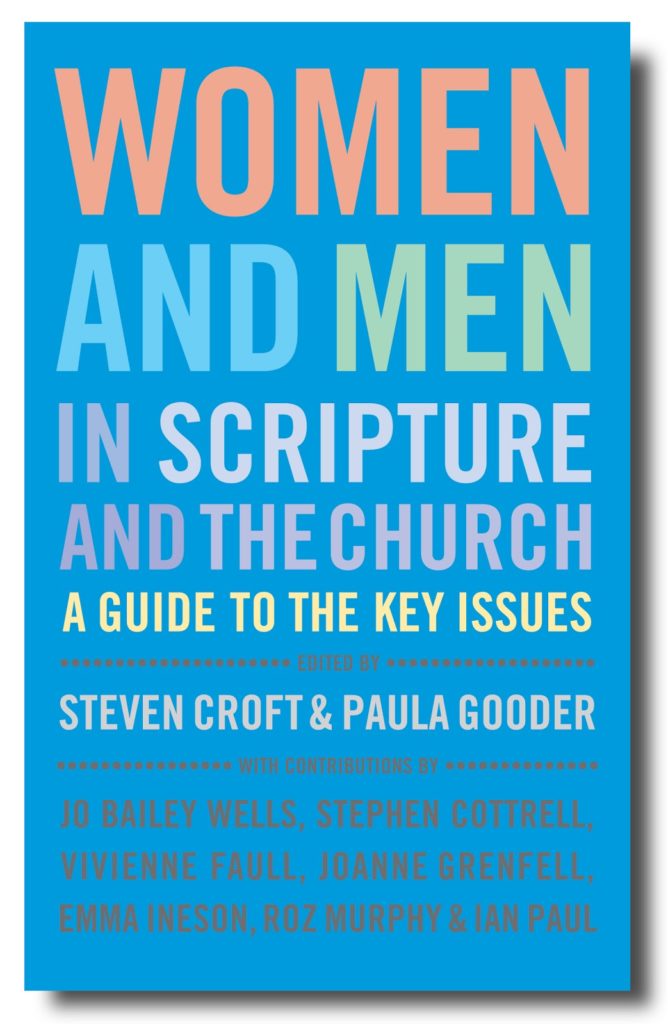Today was the Legal Service for South Yorkshire in Doncaster Minster. The Legal Service here marks the end of the year of office for the High Sheriff (Julie Kenny this year). The Service is a gathering of judges, lawyers and others from the legal profession together with representatives from the universities and civic life.
I was invited to preach today and this is the text of the sermon with the theme of leadership in difficult times.
Strengthen the weak hands and make firm the feeble knees
A sermon for the Legal Service at Doncaster Minster 17th March, 2013 Isaiah 35.1-10; John 12.1-8
I begin this sermon with a text from Scripture and with a question.
The text contains striking words of encouragement from the Book of Isaiah. They are words of encouragement for difficult times:
“Strengthen the weak hands and make firm the feeble knees. Say to those who are of a fearful heart, “Be strong, do not fear”.
And the question for all of us is this: “How do you exercise leadership in difficult times?”
No-one can pretend that life is easy or straightforward in South Yorkshire at the present moment. The legal profession, the police service, local government and the voluntary sector and many other parts of society face real challenge.
We are all too familiar with the causes and the effects. The economic winter continues. We long for green shoots of recovery. All of us are being challenged to do more with less. Change keeps coming and it cuts into the lives of our communities and our professions in deep ways: the bedroom tax, the welfare reform bill, the legal aid reforms. Some might argue that the burden of these cuts falls unevenly across the country and unevenly across society. You might think that. I couldn’t possibly comment (at least not in this context).
We all have different views on the economy, on the changes and on what should be done. But I think we would all agree that, taken together, these are difficult times to offer leadership and service in our communities.
The magistrate with a full court; the police officer on the long night shift; the manager of the advice centre with a growing list of clients but a reducing budget; the local councilor making difficult choices; the church minister setting up another food bank; the debt counselor seeing payday loans increasing; the child protection officer called to another demanding case; the judge in the family courts watching over the welfare of children as family pressures grow; the solicitor navigating the changes in the legal system.
How do we exercise leadership in difficult times? How should we encourage one another in the demanding roles we have been given in public service? What do we do when hands grow weak and knees become feeble and hearts are afraid? Where do we turn? Where do we find the inner strength to go on loving and caring and building for the future in public service?
Let me offer you three places where strength is found within the Christian tradition. These are three things to nurture when hands grow weak and knees grow feeble. These are three deep wells to find refreshment in the desert. Three places to turn when times are hard.
When you are leading in hard times, build vision, build respect and build community. Build vision, build respect and build community.
First build vision. This is Isaiah’s ministry. He was called to preach in a time of great change and turmoil and a bridge between the ages and between civilizations. A long season of prosperity and peace was coming to an end. The crisis was global not local. Isaiah has to prepare God’s people for a new world order.
How does he do it? He speaks the truth about the situation. It is difficult and painful. But he also nurtures vision of what can be in the future and that is why his message is preserved. He constantly paints a picture of a better world. Isaiah dreams dreams and he puts those dreams into words. He tells of a better world still to come.
“Then shall the eyes of the blind be opened and the ears of the deaf unstopped, then shall the lame leap like a deer and the tongue of the speechless sing for joy. For waters shall break forth in the wilderness and streams in the desert…..And the ransomed of the Lord shall return and come to Zion with singing; everlasting joy shall be upon their heads”.
The language is the language of poetry and song. But it is song which gives strength and hope and which lifts our eyes to a better future and a bigger horizon.
We need those songs today. Those who lead in difficult times can so easily grow weary. Ideals can slip. Cynicism and despair sap our strength. Our knees grow feeble and our hands grow weak.
Those are the moments when we need to connect ever more deeply with the vision which shapes us and drives us. For me, that is the Christian vision of the world: a world which God created and which God sustains; a world which is not yet perfect or complete but a world which one day will be set right; a world in which every person is loved, every person has dignity and value, a world saved and redeemed by Jesus Christ.
That vision leads in turn to a vision of a society which is fair and just and free and safe for all and where everyone can prosper.
We need to nurture vision and find strength and pass that vision on to others.
Second build respect. Hard times too easily breed suspicion of others and ready criticism which saps our strength. Leading in hard times means building a culture of respect in others.
We find an example of deep respect in our gospel story. Jesus is dining with his disciples. Mary, one of the hosts at the dinner, in an act of great courage, offers to Jesus the most costly treasure she has, a pound of expensive perfume and an act of love, anointing him for burial. She makes her offering in public, before the gaze of others, a costly, vulnerable act of service.
There is an argument about money and budgets. The arguments are nearly always about money and budgets are they not. “Why was this perfume not sold for a year’s wages and given to the poor”? The situation is highly charged. They look to Jesus for judgement.
And what does Jesus do? In the midst of the argument he sets his priority on building a culture of respect, of honouring what Mary has done, of protecting her love and devotion and causing it to be remembered for two thousand years and more. Praise is a more powerful tool in difficult times that criticism.
As we lead through difficult times in our own day, in the courts and the law firms, in the council chambers, we need consciously to build together and deepen a culture of respect for one another, respect for people of different views, respect for those who have nothing, respect for one another as those who engage in public service together.
It is all too easy in difficult times to abandon respect and create a culture of criticism and blame. But a culture of criticism and blame will only serve to weaken the bonds of our society and our communities. The more our society is characterized by true respect and worth, the more people will offer their gifts in service to their community. We especially need to foster respect and value our public services and our institutions, our legal services, our police force and our police officers, to pay tribute to their courage and dedication and to express our appreciation for all that they do well.
We draw our strength from vision and we draw our strength from creating a culture of confidence and respect. The third place I would encourage you to look as we lead through difficult times is the call to create community.
Difficult circumstances often divide people. Again we see that in our gospel story. The pressure is increasing for Jesus and for the disciples. Mary’s generous action leads to division. Jesus respects Mary’s love but he also seeks to build and deepen this small community, to hold them together as the pressure increases, to prepare them for all that is to come.
In all our experience, I am sure, quarrels and divisions abound in difficult times. It is true in marriage, it is true in offices, it is true in teams, it is true in towns and cities.
Leadership in difficult times must always be about resisting those divisions, about healing the quarrels, about resolving the conflicts, about reconciling the differences, about making peace and building community so that all may work together and all may flourish.
We are passing through difficult times and all of us here are called to offer leadership in the different parts of our community: within the professions or the legal system, within local government, within the family. We should make no mistake that clear, united leadership is called for in our society at this time from every different sector.
What kind of leadership will we offer as hands grow weak and knees grow feeble and fears increase? Where will we find the strength we need?
We will find that strength not in despair but in vision, as we dream our dreams of the future together. We will find that strength not in blame and criticism but in respect and appreciation of those in public service. We will find that strength not in isolation but by constantly building community and shared values.
May God give to each of us this day to each of us renewed strength to build that vision, to offer that respect and to grow that community in the places where we serve.
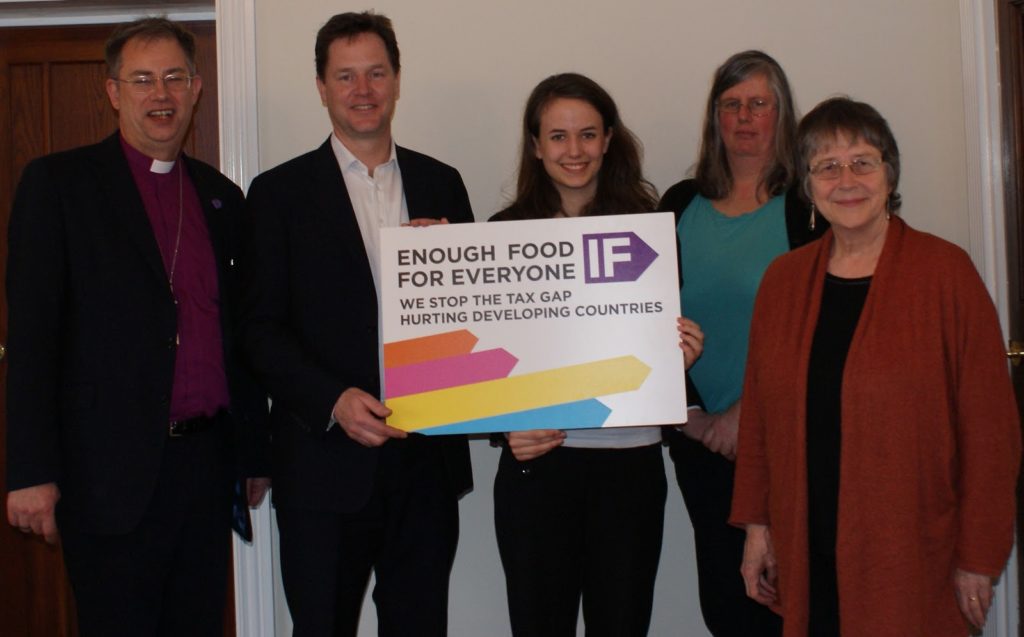 If you don’t know the IF campaign then please look at their website and sign up. The full title is Enough Food for Everyone: IF. It’s a campaign against world hunger and is a major coalition of charities, aid agencies and churches, including the Church of England and, of course, Christian Aid. IF is focussing on the four priorities of aid, land, tax and transparency. IF is a focussed campaign and geared to the UK’s pivotal role as chair of the G8 summit this year. More details at http://enoughfoodif.org
If you don’t know the IF campaign then please look at their website and sign up. The full title is Enough Food for Everyone: IF. It’s a campaign against world hunger and is a major coalition of charities, aid agencies and churches, including the Church of England and, of course, Christian Aid. IF is focussing on the four priorities of aid, land, tax and transparency. IF is a focussed campaign and geared to the UK’s pivotal role as chair of the G8 summit this year. More details at http://enoughfoodif.org
